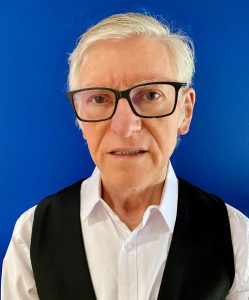In 1978, Antoine Bascom Professor and Leona Tyler Professor of Psychology Hill Goldsmith celebrated a major academic milestone when he received his PhD in Psychology from the University of Minnesota. Following postdoctoral training and two faculty positions, he joined the faculty in the UW–Madison Department of Psychology in 1992. Now, at 72, Goldsmith is celebrating another milestone – retirement.

Internationally renowned for his research on the genetic bases of typical and atypical child emotional development, spanning infancy to early adulthood, Goldsmith contributed considerably to our understanding of the biology of complex development with his Wisconsin Twin Research lab. His research has yielded information of immense practical significance, including in the areas of adolescent suicide, childhood peer victimization, and childhood risk factors for obesity. And his construction of several age-graded versions of the Laboratory Temperament Assessment Battery have enjoyed worldwide adoption.
During his career, Goldsmith published more than 200 journal articles and chapters, all focused on human behavioral development and generating novel insight into the complex interactions between temperament, genes, brain function, and experience. In recognition of his multiple contributions to the field, he has been the recipient of multiple awards and honors, including, a MERIT award from the NIMH, the Dobzhansky Award for career achievement from the Behavior Genetics Association, and a Vilas Associate Award from UW-Madison.
What’s more, said former lab colleague Nicci Smith, Goldsmith built an academic family with global reach: “an enduring impact that shaped how we think about individual differences; a profound benefit to all professions that serve children and families. Perhaps even more important – the countless individuals who understood children a little better and became better parents themselves. People who understood themselves a little better and developed a greater sense of wholeness and self-compassion. Gifts that will benefit generations to come.”
Added current advanced graduate student Emily Hilton, “On top of all that he intentionally taught me, I have learned so much about how to be a scientist simply through witnessing the attention, thoughtfulness, and care he devotes to every aspect research. Instead of accepting the status quo for anything from the treatment of certain variables to the use of a term, he draws his lab into rich conversations that encourage us to inspect the issue critically and independently. Through each of these conversations, he has taught multiple future generations of researchers how to approach their work with integrity and intentionality.”
Outside of his lab, Goldsmith taught undergraduate courses on social and personality development, intermediate statistics, and behavioral genetics, as well as capstone courses on a wide variety of topics. His graduate courses covered psychometrics and the history of psychology which were required for APA accreditation of the clinical training program, core courses on emotion and child psychopathology, and many seminars.
In addition to teaching and research, Goldsmith served as Psychology Department Chair for two 4-year terms, making him the longest serving Chair in modern history.
“Hill has had an outsized impact in both his field and in the department,” said current Department Chair Craig Berridge. “He brought an unusually thoughtful approach to research, teaching, and mentoring, and as a departmental leader. There is no doubt his contributions will have a lasting effect on generations of scholars.”
In retirement, Goldsmith will continue to advance his research alongside many current and former trainees – as well as their students. Said Goldsmith, “I plan to analyze data and write some of the most important papers of my career. At the same time, I’ll continue to make de-identified data available to other researchers because the Wisconsin Twin Project is informative about many issues that we have not yet been able to address.”